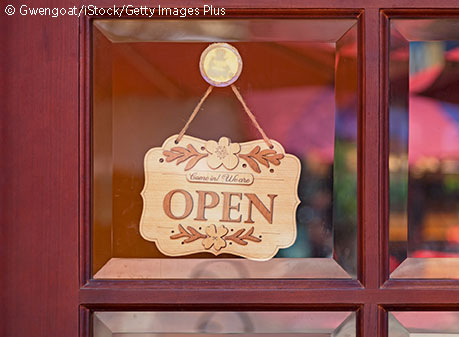Heightened Interest in Small-Business Development in the Eighth District

A growing share of community stakeholders in low- and moderate-income (LMI) communities across the Fed’s Eighth District Headquartered in St. Louis, the Eighth Federal Reserve District includes all of Arkansas and parts of Illinois, Indiana, Kentucky, Mississippi, Missouri and Tennessee. reported increasing demand for small-business development services, according to the 2019 Community Development Outlook Survey.
The survey—conducted by the Federal Reserve Bank of St. Louis—asked about trends affecting the region’s LMI communities. (It’s important to note that survey responses were collected between Oct. 29 and Dec. 9, 2019, or before COVID-19 became widespread.)
In the survey, 49.2% of community stakeholders said demand by LMI individuals and households was increasing for the small-business development services offered by these stakeholders, while 34.4% reported demand as staying the same.
In the 2017 survey, 38.2% reported higher demand for such services, and 52.8% reported demand was unchanged.
Meanwhile, 39.3% of stakeholders in 2019 reported an increasing ability by their organizations to provide these small-business services, and 45.9% said their ability stayed the same.
Type of Businesses
In terms of the primary small businesses that LMI individuals and households are interesting in starting:
- 31.9% reported food services as the primary small business
- 30.2% reported retail
- 13.8% reported construction and trades
Meanwhile, traditional financial institutions (28.4%) and family and friends (25.9%) were the biggest sources of capital for starting small businesses, followed by community development financial institutions/microlending organizations (19.8%) and credit cards (9.5%).
Only 2.6% reported online lending and 1.7% reported crowdfunding as the biggest source of capital for starting new businesses. Though still small, these shares have increased from the 0.7% reported for each funding source two years ago.
Drumming Up Business
Finally, the 2019 survey also asked about the type of marketing efforts that small businesses in LMI communities use to inform and build support for their small business:
- 60.5% reported social media (Facebook, Instagram, Twitter)
- 16.7% reported “word of mouth”
- 7% reported a newspaper
- 7% reported a website
Notes and References
- Headquartered in St. Louis, the Eighth Federal Reserve District includes all of Arkansas and parts of Illinois, Indiana, Kentucky, Mississippi, Missouri and Tennessee.
Additional Resources
Citation
ldquoHeightened Interest in Small-Business Development in the Eighth District,rdquo St. Louis Fed On the Economy, Aug. 23, 2020.
This blog offers commentary, analysis and data from our economists and experts. Views expressed are not necessarily those of the St. Louis Fed or Federal Reserve System.
Email Us
All other blog-related questions

